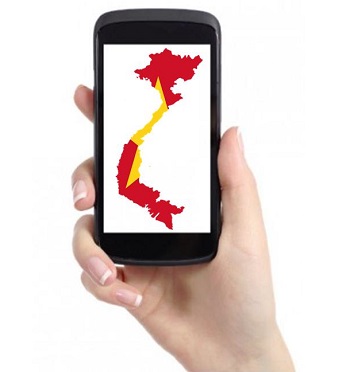A new application has now been launched under the title MyShake, to help warn people of coming quakes.
A new mobile app has now been released to help to provide users with some warnings of earthquakes in the area that have been detected, so smartphone owners will be able to contribute to the ability to detect and alert people with regards to a quake that may be on its way or that is already occurring.
The mobile app was designed by researchers from UC Berkeley in order to turn mobile devices into seismometers.
That said, this particular mobile app is actually a part of a greater experiment, and the hope is that users will help out and participate in order to make MyShake successful. The application is currently available from the Google Play Store and it continually runs in the background of a device. It uses very little power, so it shouldn’t cause a drain on the device battery (so it won’t require you to plug into a portable charger any more often than usual).
The mobile app works by employing the accelerometers in the device in order to record tremors.
 This way, as long as the mobile device is on, even if it is in a sleep mode, at the time, the app will be able to detect shaking at any time, regardless of whether or not it is day or night. At the moment, it is only the accelerometers of the device that collect the data. From there, the data undergoes an analysis. Should the movements fit an earthquake’s vibration profile, that data and the GPS coordinates of the smartphone are sent to the Berkeley Seismological Laboratory in order to undergo further analysis, there.
This way, as long as the mobile device is on, even if it is in a sleep mode, at the time, the app will be able to detect shaking at any time, regardless of whether or not it is day or night. At the moment, it is only the accelerometers of the device that collect the data. From there, the data undergoes an analysis. Should the movements fit an earthquake’s vibration profile, that data and the GPS coordinates of the smartphone are sent to the Berkeley Seismological Laboratory in order to undergo further analysis, there.
That said, once the application has been used for a while and the seismologists at UC Berkeley are able to work out all the bugs, the intention is to use this mobile application to provide people who could be affected by the earthquake with a warning that something is coming. The team also intends to design a version for iPhone users.
When discussing the mobile app, the leader of the project, Richard Allen, who is also the Berkeley Seismological Laboratory director, in addition to being a professor and the Department of Earth and Planetary Sciences chair, said that “MyShake cannot replace traditional seismic networks like those run by the U.S. Geological Survey, UC Berkeley, the University of Washington and Caltech, but we think MyShake can make earthquake early warning faster and more accurate in areas that have a traditional seismic network, and can provide life-saving early warning in countries that have no seismic network.”

 Mobile shopping is growing quickly throughout the Asian market, with smartphone penetration accelerating significantly. In Vietnam, consumers are finding that shopping with their mobile devices is more convenient and, in some ways, more secure. Retailers are embracing this trend, allowing consumers to shop on their websites with their smartphones. Notably, many consumers prefer to use web browsers rather than applications, as browsers provide them with a more enjoyable shopping experience.
Mobile shopping is growing quickly throughout the Asian market, with smartphone penetration accelerating significantly. In Vietnam, consumers are finding that shopping with their mobile devices is more convenient and, in some ways, more secure. Retailers are embracing this trend, allowing consumers to shop on their websites with their smartphones. Notably, many consumers prefer to use web browsers rather than applications, as browsers provide them with a more enjoyable shopping experience.